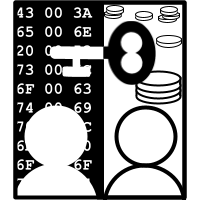Smart contracts already present open-source, borderless, decentralized alternatives to some financial and legal services. What is the space of interactions enabled by this new primitive? To what extent are existing services replicable in this new way, and what are their limitations?
One example of a novel interaction is that some smart contracts can be used to credibly bribe users of other smart contracts. How can the underlying contracts be built to be maximally robust to such attack?
Today, many smart contract applications rely on oracles, computational infrastructure that injects data from the real world into the blockchain. How can we design oracles that are decentralized and maximally robust to attack?
Professor David Parkes - "We have investigated a number of examples of contracts in the Ethereum space that are designed intentionally to harm other smart contracts and their users. An example of this is frontrunning bots, which use high gas bids and fast connections to skip ahead of traders who are placing large trades on decentralized exchanges. A fascinating arms race has developed as still other contracts spring up, designed cleverly to drain the funds of those frontrunners. We've also seen a number of attacks on oracles, commonly making use of the novel 'flash loan' construction -- a cheap loan of arbitrary size that is given and returned in the same block. As oracles are critical infrastructure for any smart contracts that deal with the real world, we are working to find oracle designs that are maximally robust to bribery attacks.”

